There are two types of people in this world: The ones who prepare for the worst case scenario, and those who don’t. Often you’ll hear people who don’t prepare for SHTF say things like “what will you do if SHTF never happens?” But even if doomsday never comes, the people who prepare are actually better off than those who aren’t prepared for SHTF. And here are 23 reasons why you should keep prepping even if SHTF never happens:
- Self-Defense: It’s no surprise that doomsday preppers are ready to keep their families safe from violence in SHTF. Between street muggings and home invasions, normal everyday crime still poses a threat to us. Having self-protection skills are a plus in SHTF or normal society. So, check out the best MMA self-defense techniques.
- Leadership: If you’ve been prepping for SHTF, you probably realize that a crisis requires a leader. If you’ve studied on any leadership skills while getting ready for the big event, you’ve probably exhibited some of those qualities. Leadership qualities aren’t a waste of time. They can help you at home, at work, with friends. Everyone wants to be around a strong leader.
- Inflation: The thought of a “weaker” national dollar or euro might scare some, but not the prepper. When a prepper has 3 years supply of toilet paper, food and other toiletries, those goods are purchased at the price of “yesterday”. Even if SHTF doesn’t happen, the prepper becomes insulated to the loss of purchasing power that people who have to buy groceries every week suffer. It’s a great way to protect your wealth over time.
- First-Aid: In normal society people still get cuts, broken bones and need a first-responder. If you’re prepared for anything, you are prepared for first-aid. And those skills and supplies may not go unused even if “S” doesn’t “HTF”.
- Droughts: The lack of water seems really scary to some, but to a prepper it’s just another hurdle to tackle. From collecting and storing water to rationing and purifying water, the doomsday prepper can handle this naturally occurring disaster. The end of the world might not come but the prepper will probably never go thirsty. Here’s how to can water for emergencies.
- Discipline: If you’ve been putting away food, water and training for the worst case scenario, you probably have discipline. The will to keep at something that may never happen shows dedication and a will to force yourself to “drive-on”. There are so many facets of normal life that exceptional discipline will pay off. The prepper need not experience SHTF to be better off with good discipline. Keep prepping!
- Long-term Planning Skills: Along with discipline, long-term planning skills can help corporate employees improve the function of their department. Who knows, long-term planning skills could lead to a nice job promotion.
- Organizational Skills: Whether you’re in the corporate world or working in a skilled trade, better organizational skills will not go unused. Even if SHTF doesn’t happen, your boss and co-workers will love the better organized environment that you create.
- Fitness: To survive SHTF, you have to be in relatively good physical condition. But don’t let your health go if doomsday never happens. Your energy level, quality of life and cognitive outlook all benefit from excellent fitness levels.
- Dwelling Construction & Repair: Patching a roof to seal out the weather, insulating a house with no heat; these are concepts applicable to anyone who owns a home. Investing the time to learn to repair your home is a worthy endeavor. Whether SHTF comes along or not, you’ll save a lot of money doing your own house repairs.
- Automobile Maintenance: Similar to home repair, automobile repair is a handy skill for preppers, specifically so they can keep their bug-gout vehicle working. But just think of all the money you save by learning to repair your own vehicle, even if a post-apocalyptic never happens.
- Gardening: Growing your own food is a great way to lower your overall food bill. Even in the winter, if you are into canning, your family can enjoy the “fruits of your labor” all year long. Gardening is not just for preppers!
- Self-Sufficiency – Being self-sufficient has its perks. One of the nice things about being self-sufficient is that even if SHTF doesn’t happen, localized emergencies happen all the time. If you “prep” you won’t have to rely on intervention from government services, and in fact, you may be able to help your community if you’re prepared enough.
- Income Loss: We all suffer job loss from time to time. One of the major benefits of keeping a well-stocked pantry is that in the even that your income is severally cut, you can go quite a while without assistance from others. A good size pantry is a great insurance plan!
- Family Traditions: While you’re canning, gardening and baking , you’ll make traditions. Traditions are born out of the way families do things required to survive (such as baking, farming, gardening, etc.). Even if the grid never goes down, when you’re prepping with your family, you’re building wonderful bonds.
- Outdoor Survival Skills: All those outdoor survival skills you’ve gained while preparing for the end of the world . . . they won’t be lost on you or your family. Get out and go camping, real camping in the middle of the wilderness. Again this ties back into building traditions. Gaining outdoor survival skills are a great way to get ready for a camping trip of a lifetime.
- Tools: If you’re like me, you’ve stock piled several sets of every kind of tool you come across. And it’s done with good reason. If SHTF you’ll be able to barter for necessary items with the valuable tools you have. But I also like having extras of each type of tool to loan out to friends and give as “bond building” gifts to neighbors in need. Giving tools is a great way to build rapport and rapport is worth more than money, SHTF or not. Check this list of tools you will need when SHTF.
- Floods & Fires: Surviving floods and fires requires a special kind of person. A person who can bug-gout at a moment’s notice and get their loved ones to safety. Who’s better prepared to do that than a survivalist? People who aren’t into SHTF prepping are probably a lot more likely to listen to you about preparing for a flood or fire than the end of the world. Preppers should be experts on this topic.
- Earthquakes & Tornadoes: These types of disasters are common and require an important but different set of skills than preparing for floods and fires. While doomsday isn’t here yet, one’s community might call on the prepper to use their search and rescue skills to locate folks after such events.
- Improvisation: We live in a disposable society. If something breaks we throw it away. But the prepper will find a way to fix what breaks or re-purpose it to something useful. When all the hardware stores are closed and you need a quick fix on your basement sub-pump, the prepper is a great person to know.
- Worry Free: By and large, preppers should live worry free. While they’re prepared for the worst case scenario, they are better prepared than 90% of the people around the globe. SHTF may happen, it may not, but either way, the prepping family “has it covered”.
- Interpersonal Skills: Dealing with difficult people can be a pain in a doomsday situation and in regular life. But the prepper excels with great interpersonal skills, because he/she knows that dealing favorably with other people gets you far in life. The prepper has a spot in their library for “How to Win Friends and Influence People”.
- Motivation: Last and certainly not least is the concept of motivation. All the prepping, learning, doing and helping others is not in vain if S doesn’t HTF. If nothing else, the prepper motivates people to keep taking strides to be self-sufficient, help their community and secure their family.
Take heart, when other say “what if the end of the world never happens?”. You’ve got things covered either way. You have peace of mind. And all of your prepping is useful in many other ways. Don’t quit being prepared, you never know who’s watching, and who becomes inspired.
You may also like:
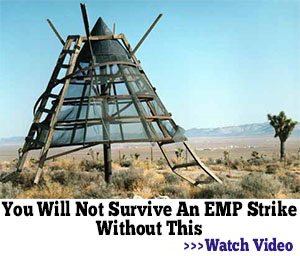 Are You Prepared for the Biggest Social Unrest of Our Modern Times?
Are You Prepared for the Biggest Social Unrest of Our Modern Times?
How to Make Your house Invisible to Looters (watch video)

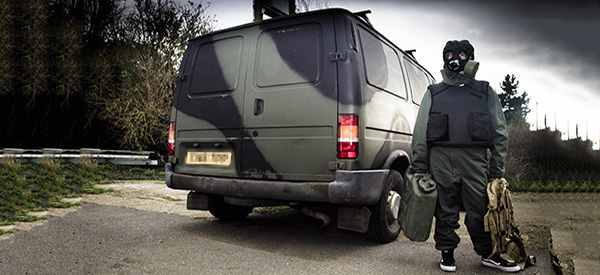

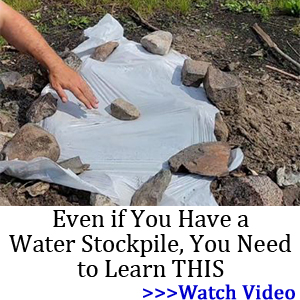


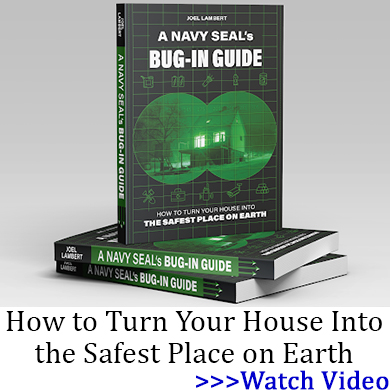




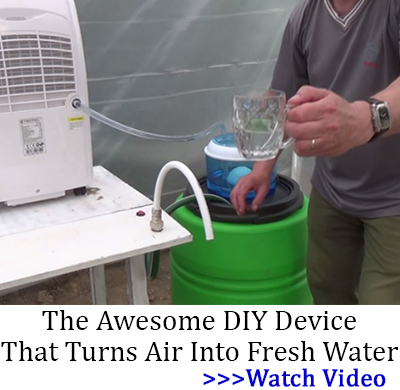
Excellent article!
In addition, with every governmental agency from the local water board, city government, state and federal advising us to prepare “3 days worth of food and water” one has to fly in the face of massive amounts of advice not to be prepared for some sort of emergency. I think 3 days is highly optimistic as it takes every government 3 days to organize a meeting to talk about a possible situation.
Left coast; this comment by you, made me think of, The worst words to hear, is, ‘we are from the government, and are here to help”, Was that Reagan? AND gave me good laugh. Gov, is there to HELP themselves to our tax dollars, while doing nothing. This is WHY there is talk of SHTF. I could collect a paycheck and just talk, and talk, and talk, from congress, then take a vacation, get a raise, and use my gym and other gov,. perks! Take off for every holiday.
Older: I think his comment was, “The scariest words in the English language are: ‘We are from the government and are here to help,'”
Perhaps we should consider ourselves lucky that congress takes so much time off. Think of the harm they could do if they had to report to work every day like the rest of us. The press used to heavily criticize Congressman Adam Clayton Powell because he spent most of his time in Washington actually in Bimini sport fishing. I have often said we need more congressmen like him because when he is on a fishing boat in the Caribbean at least he isn’t dreaming up new rules and regulations to our detriment.
left coast chuck & Older prepper,
That was indeed Reagan; but, he was talking about the Federal government, run by bureaucRAT’s living far from any disaster scene.
I have been a volunteer with our local county EMA (emergency Management Agency) for 20 years and while we try and get the citizens to have that 72 hour kit, there are still too many that ignore the request. While we have no local water boards here, with our agency and many fire & EMS agencies depending a lot on volunteers, it can easily take 3 days to get equipment and people together to deploy to an area and find everyone with a need. We can often have people, vehicles, and other assets in the field within hours; but, in a large event, getting to those in remote areas, or that last person / family in a heavily hit area just takes time.
That is probably more true the higher up the food chain you get; but, at the local & state levels, at least in my area, we can deploy assets rather quickly, and have SOP’s for about any situation.
Everyone says 72 hours. If the big one happens someplace (i.e. New Madrid Fault) it will be 72 DAYS before some areas get the help they need. 72 hours may apply in the population centers, but the rural areas will be left to fend for themselves.
If you want to read a really scary book, read “The Rift” by Walter Jon Williams. In it, the author sets a new earthquake along the New Madrid fault line. He interposes actual letters and newspaper articles from the time of the first New Madrid earthquake throughout the book. I thought we had earthquakes here in the peepuls republik but we don’t have earthquakes, we only have large trucks driving down the street. The 1812 New Madrid earthquake was an EARTHQUAKE! The natural events that the earthquake generated were mind boggling. Not considering the earth shaking almost daily for about a year with intermittent estimated 6+ Richter scale aftershocks; huge rents in the ground occurred; rivers flowed backwards; the Mississippi changed its channel; and the most unusual thing that occurred were sand volcanoes where gas escaping from the earth shot coal, sand, rocks, decayed wood and all sorts of long buried material considerable distance into the air. Of course because most of the Mississippi Delta is alluvial plain there was considerable liquefaction of large areas. The people living in the Mississippi Delta region thought they were living in hell and I would have thought that too if I were living at that time. All that in a region that was mostly rural without industry, just farming and the industry associated with an agricultural economy. Compare that with the way the region is developed today. An earthquake like the 1812 New Madrid earthquake makes anything that might happen in in Kallyforniya look, as I said, like a large truck driving down the street. I don’t know why Kallyforniya gets so much coverage when New Madrid has the potential for significantly greater impact on our whole country. If you live in the Mississippi River drainage area and you read “The Rift” I think you will put your house on the market and move to Parkfield, CA where the San Andreas runs through town and one side of the town is several inches further north than the other side. It’ll be a lot safer. Based on my reading of “The Rift” I would have to agree with Rick. 72 days might be a speedy response. There is a huge difference between providing aid for 50 to 100 thousand people and providing aid to 50 to 100 million people. If I recall correctly, shocks from the New Madrid earthquake were felt in Chicago and Washington D.C. How many millions of people live in the Mississippi drainage system? The 1812 earthquake started in December, so the river system wasn’t at flood stage. Had it started in the spring when the river system was at flood stage, the damage would have been even more severe.
Great article, great comments, all. To add to our historical perspective on major past events, I recommend the book by John Kelly, The Great Mortality. Although the book follows the development of the second bubonic/septicemic/pneumonic plague from the middle 1300s that was later named the Black Death, the dramatic climatic events that preceded the plague are eye-opening, and bear silent witness to the whole idea of preparation for what may come.
We can’t know whether we should guard against floods, earthquakes, tornados, fires, or the next pandemic. So we guard against all that our imaginations describe.
I fear the lack of imagination of those in power more than I fear their power-mongering or evil intent.
Lucy,
One must keep in mind the factors that allowed Plague to spread and be so deadly.
Yersinia pestis, the cause of plague in all of its infectious forms was carried by the Oriental rat flea and rats were thick in those times, since the superstitious people thought of cats as familiars to evil beings and eliminated them. In addition, the filth and squalor of the population in those times was the perfect breeding ground for those rats.
Y Pestis can easily be killed by numerous antibiotics, none of which were available at the time. The plague happened from 1347 to 1352 with the antibiotics required to fight the plague only discovered in the early to mid 1900’s some 600 years later.
I disagree and will explain how at the end of this post. In my case & location flooding, wildfires, and hurricanes are of no concern with earthquakes unlikely and only tornadoes a real threat. One needs to be honest & realistic with your personal situation.
Having worked with those people at the state and county level for 20 years, they / we have rather good; but, realistic imaginations when constructing scenarios and mitigation.
And now for how the individuals might be able to plan with some organization.
”The Threat matrix revivited”
Something you might want to do to organize your start is a technique called ”The Threat Matrix” , that I will describe here. This tool is not hard or complex; but, will take some clear and honest thinking as you create it, and once it’s completed, you’ll have a map to start you on your way with some semblance of organization, and perhaps a little less stress. You can use paper and pencil, a dry erase board or Post-it Notes, or a spreadsheet or word processor, if you’re comfortable with one of those tools. Here is how you construct the one for your situation.
Start with a list of threats in prioritized order, with loss of your income, death in the family, or sudden acute illness at the top. Add global nuclear war and life ending asteroid strike at the bottom. Fill in the middle with the threats you and your family could actually face. As an example, in my location we can have blizzards and tornados; but, are not concerned with earthquakes or hurricanes and generally not much with floods or wildfires at my actual physical location, so be honest with yourself for your area, location, and situation.
Next, starting at the most likely / highest priority event, make a list of the resources required to mitigate that threat. A resource in this case would be Materials, knowledge, and/or skills.
Keep in mind also that often people confuse information, knowledge, and skills with each other. There is; however, a simple way to understand the difference and that is the application of each to your own situation. A library with all of its books or the internet with all of its web pages, podcasts, & videos, contains absolutely no knowledge. That content is only information. When you apply that information by reading, listening, or watching, then you gain knowledge when you start to understand the concepts.
That act of absorbing and understanding information does not however make a skill until you then apply that knowledge by ”doing” something to create a skill, and then practice that skill to become proficient. One additional concept to keep in mind is that the old maxim, ”Practice Makes Perfect” is only partially correct, since only ” Perfect Practice Makes Perfect” , especially when doing things that could be dangerous, like chopping or splitting wood or running a chainsaw, so take your time.
Once you have made your threat list, and added the knowledge, skills, and resources required to mitigate that threat, move on down to the next one on the list. What you will find is that as you move down the list, you start needing to add fewer & fewer items, since they have already been covered in the levels above. Once the matrix is complete, you have a plan with a map for the supplies, knowledge (books and other information), and skills to acquire, and like any journey, it just gets easier with a map to the destination.
Also, note that as you prepare your way down this list, other things you missed will pop into your head; but, be assured that this is normal, and as you move on this journey in an organized fashion, you should occasionally stop and smell the flowers, looking back for just a minute to see how far you’ve come. Always looking ahead will only tend to disappoint you, because this journey like life itself never has a final destination. I’ve been seriously on this journey and lifestyle for 50+ years, and still on occasion wonder what I’m missing.
Your journey forward into preparedness will be constantly changing as you acquire new resources or skills, many of which will then equip you to think of and ask questions that might not even have been thought of at the start, since we are often sometimes to ignorant to even ask the right questions. One of those resources are the incredible people here who are not too proud to admit ignorance and ask a question and often have the knowledge or skills to answer one., so don’t be shy and ask or answer.
Sometimes not knowing what we don’t know is our biggest problem; but, as you move forward, often very obvious things will pop into your head, at which point you go back and rework the matrix; but, I think you’ll find that it will only get easier and you will eventually gain some peace of mind
I’m a believer that modern government does not have the best interest of the population in mind. 72 hours is a joke when survival is at the stake. Even a lost job and depletion of income can be considered a shtf scenario. No, prepare for at least a month and work up to a year.
Wannabe,
I might agree with that description for the political class; but, the ground pounders who actually render the aid are good people who are well intentioned and well trained. Think of how many first responders from the FDNY died on 9/11 running into a burning and collapsing building and you will know those people I work with as a volunteer.
Actually 72 hours buys time for the first responders to get to you, since it will likely take that long in a large scale event to reach everyone. This is a ”minimum” and something we strive for, for the general non-prepping, unaware public.
Outstanding article from one whose great-grandparents came across on the wagon trains and homesteaded in Eastern Oregon because the health condition of their remaining livestock was such that further travel would have become a hindrance to long term survival. This past did generated some conflict between generations as the transition from horses power to HP ratings required more thinking outside the box as the younger generation tended to view older generational views of doing things the hard way.
We were still prepared for the flukes of nature where others weren’t. Having a 17″ snowpack @ midnight disappear in about 5 hours when encountering a warm Chinook wind where the temperature raised from 30 degrees to 60 degrees in a couple of hours and is grievously deleterious to gravel roads did reinforce the wisdom of purchasing our first 4W Drive. That prep validation has stuck with me and hopefully that lesson was passed onto my children and grandchildren.
Excellent article. Now…can anyone give reasons not to prepare? I don’t think so….
Dave from San Antonio,
Normalcy bias (it can’t happen to me) or not wanting to be part of the lunatic fringe are the most likely, and then of course there’s the expense and bother.
These of course are excuses and not reasons; but, the common things I’ve encountered over the years.
Prepping is a lifestyle for me now. It is always considered an investment and can be passed down to your kids.
For a large area disaster, maybe 72 days might be the case, not 72 hours. You didn’t mention hurricanes, in your reasons. Look at the response time for many hurricanes and it is days if not weeks. Same with massive flooding.Some snow/ice storms leave areas without power for days/weeks. All of these require methods of preparing and cooking foods, getting portable water, disposing of waste/toilet. I have family in hurricane areas, that believes that god will provide, and they don’t need to prepare, nothing I could say or do changed their mind. If the worst happens, they will die, but that is their choice.
Joe,
Generally with 72 hours assistance can be on site; but, keep in mind that assistance is hierarchical, with the local government (county, city, and parish) first in line, asking for help from the state or regional resources and finally from FEMA. The closest local help comes from your own initiative and the more prepared you are, the better off you will be.
Actually it is often negative days, since modern storm forecasting and satellites give residents in hurricane country days to weeks of warning, with too many deciding to wait until the last minute to evacuate, or worse yet, ride out the storm. In this case your 72+ hour kit should be in your evacuation vehicle and you should get out of the path of the storm, instead of getting smashed and complaining that help doesn’t arrive fast enough.
That’s why we have enough food to last 4 or more adults for at least a year and have a generator and enough fuel and consumables to last most of a year (at least 8-10 months). This did not all happen overnight; but, everyone can get there if it’s important enough.
In which case I suspect they believe they will be with God who will still take care of them. Sometimes there’s nothing you can do; but, protect you and yours.
I’m being a bit flippant here, but as to 11, i really don’t think I’d want to get intona “bug-gout” vehicle.
Has anyone else ordered the prepping books and not received the hard copies? Storing these books in the cloud makes them useless when the cloud and everything else goes down.
Mt plan is a tablet with micro SD cards and a solar charger. I will get a hand crank dynamo for a back up charger and all with other gear in a Faraday cage.
My son says the SD cards require regular use to stay charged to keep the data stored intact. In our conversation on data storage, it became apparent to me, that a book or scrolls properly stored will pass info the longest. But then there are cave paintings and chiseled for the ultimate long lived medium.
L J,
We have similar plans with numerous computers now available cheap.
I have 20+ small machines in my office that can all be repurposed or reconfigured for numerous tasks.
This is true of nearly any storage medium; but, refresh, copying to another device and then back to the original, need only be done every few years and for solid state devices takes little power.
True; but, a single micro SD card can hold more than all of the caves on the planet, since storage density is so much better. I’ll stick to the electronic means with plenty of backup system components that can be configured to do what I need.